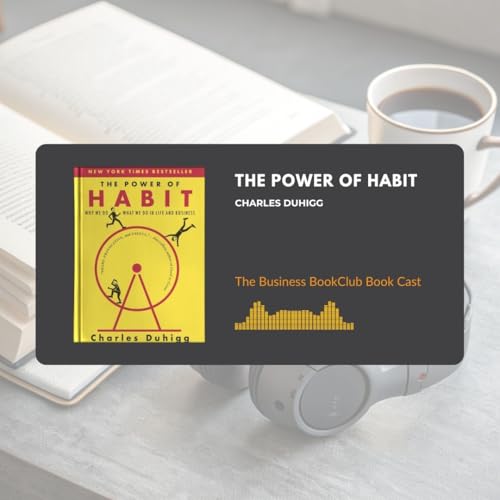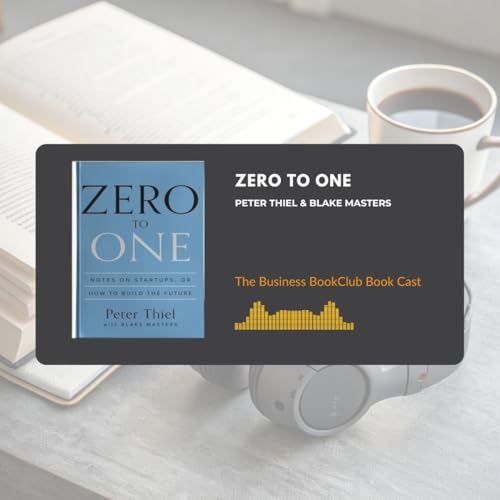Episode Summary In this episode of The Business Book Club, we go deep into Tony Robbins’ classic Awaken the Giant Within — a foundational read in the personal development space that’s transformed millions of lives.
Whether you’re an entrepreneur, a team leader, or just someone feeling stuck in the loop of habits and hesitation, this book isn’t about motivation. It’s about taking control of your mental, emotional, physical, and financial destiny — today, not someday.
Robbins offers a roadmap for turning your decisions into your destiny. He breaks down the psychology of transformation and provides powerful tools to shift behavior, upgrade beliefs, and unlock consistent action — even when circumstances feel stacked against you.
Key Concepts Covered 🧠 Decision is Destiny ✅ Your life is shaped by what you focus on, the meaning you assign, and the actions you take ✅ The difference between being interested and being committed ✅ Most people drift — successful people decide and act
“A real decision means cutting off any other possibility.”
⚖️ Pain and Pleasure Drive All Behavior ✅ Everything we do is to avoid pain or gain pleasure — understanding this helps reshape habits ✅ Link massive pain to old patterns and massive pleasure to the new ✅ It’s not willpower — it’s conditioning
🧱 Build Beliefs That Serve You ✅ Beliefs = emotional rules based on past experiences ✅ Use the tabletop metaphor: strengthen beliefs by stacking strong reference points ✅ Don’t wait for the world to change — change the meaning you assign to it
🔄 Master System: The 5 Tools That Shape Reality -
Beliefs – the foundation of what we think is possible
-
Focus – what you consistently pay attention to becomes your reality
-
Questions – direct your mind toward solutions
-
Vocabulary – the words you use shape your emotional experience
-
Metaphors – reframe your challenges to empower rather than paralyze
“If you stare at the wall, you hit the wall.”
🔧 Lasting Change: Neuro-Associative Conditioning (NAC) Tony’s 6-step process for behavior change:
-
Decide what you truly want
-
Get leverage by linking massive pain to inaction and pleasure to change
-
Interrupt the pattern
-
Create an empowering alternative
-
Condition it until it sticks
-
Test it in real-world situations
Actionable Takeaways for Entrepreneurs ✅ 1. Master Your Decisions Commit to action. Decide what things mean and move with purpose.
✅ 2. Leverage Pain & Pleasure Don’t avoid discomfort now only to create disaster later. Reverse the association.
✅ 3. Embrace CANI (Constant and Neverending Improvement) Small daily improvements in your business and life compound massively.
✅ 4. Upgrade Your Master System Rewire how you interpret the world by improving your beliefs, focus, questions, and self-talk.
✅ 5. Redesign Your Rules & Values Make it easier to feel good. Make sure your rules aren’t setting you up to fail.
✅ 6. Reinvent Your Identity Who you believe you are determines what you’ll do. Choose an identity aligned with your vision.
✅ 7. Prioritize Vitality & Contribution Fuel your body and mind. Use your energy and resources not just for growth — but for impact.
Top Quotes 📌 “It’s not what we do once in a while that shapes our lives, but what we do consistently.” 📌 “Most people major in minor things.” 📌 “The past does not equal the future — unless you live there.” 📌 “Your identity is a choice — not a sentence.” 📌 “Success without fulfillment is the ultimate failure.”
Resources Mentioned 📖 Awaken the Giant Within by Tony Robbins – [Get the book here] 🎧 Related: Atomic Habits by James Clear, The Psychology of Money by Morgan Housel
Final Thought This book isn’t just about hype — it’s about ownership. When you align your beliefs, decisions, emotions, and identity, you don’t just get results. You get momentum.
So ask yourself: What’s one small decision you can commit to today that — if sustained — would transform your next 5 years?
#AwakenTheGiantWithin #TonyRobbins #BusinessBookClub #PersonalGrowth #EntrepreneurMindset #BehaviorChange #CANI #LeadershipTools #IdentityShift #EmotionalMastery
 14 min
14 min 15 min
15 min 16 min
16 min 12 min
12 min 15 min
15 min 13 min
13 min 19 min
19 min 16 min
16 min

